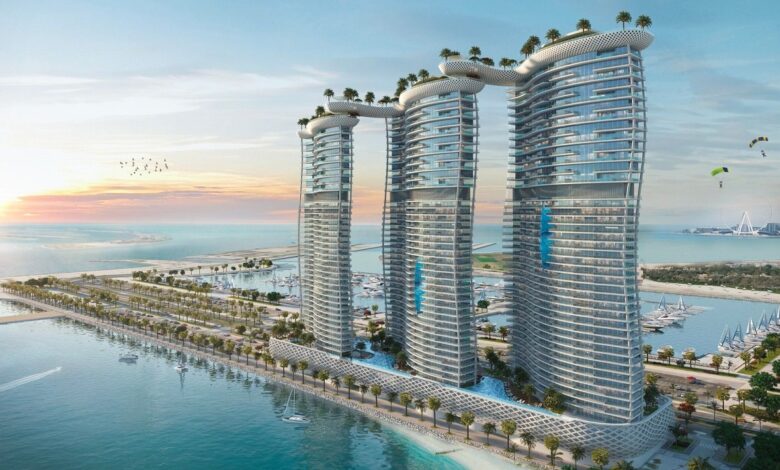Dubai Leads World in Branded Residences With Projects to Double by 2030

Dubai is the world’s leading hotspot for branded residences and supply is set to double by the end of the decade, according to property consultancy Savills.
Luxury brands and hotel groups are looking to attract real estate investors in Dubai with lavish developments and designer appeal.
In its Branded Residences Report, Savills said there are 51 operational schemes in Dubai.
The total supply of branded residences in Dubai is expected to nearly double by the end of the forecast period until 2030.
Second, in terms of completed schemes, is South Florida, with 42 completed schemes.
Branded residences as a sector have remained resilient in the face of global headwinds.
The number of branded residence schemes has increased by more than 160 percent in the past decade, with new brands, locations, and a shift in amenities set to propel the sector even further.
With more than 690 completed schemes globally, a further 600 are expected to be delivered by 2030, says Savills.
The highest growth over the pipeline period can be found in the Middle East (+120 percent) and in Central and Latin America (+89 percent), with all global regions forecast to exhibit high levels of growth by 2030.
Over the coming years, branded residences are set to continue their growth worldwide, with substantial growth anticipated in emerging cities.
Cairo, for example, is forecast to see the highest pipeline growth, moving from one operational scheme to 17 by the end of 2030.
Ho Chi Minh City, Nha Trang, Guanacaste, and San Miguel de Allende complete the top five, each with forecast growth of more than 400 percent by 2030.
When it comes to market leaders, Marriott International remains in first place, a position it has held since 2002, followed by Accor and Four Seasons.
In terms of the hotel brands themselves, Four Seasons, The Ritz-Carlton, and St. Regis lead the space (the latter two within the Marriott International portfolio of brands).
Non-US parent companies such as Dubai’s Emaar Hospitality and Banyan Tree Group have risen to become global contenders.
Despite the space being dominated by hotels, Savills estimates that non-hotel brands will account for 20 percent of the total supply by 2030, an increase of approximately 40 percent from current levels.
Within hotel brands, while luxury chains still account for two-thirds of completed schemes, upper-upscale and upscale brands are increasing their presence and are forecast to increase their market share by 50 percent and 70 percent, respectively.
In terms of non-hotel brands, YOO remains in the top spot; however, brands such as Pininfarina (Mahindra), Elie Saab, and Versace (Capri Holdings) are set to move up the rankings over the coming years.




